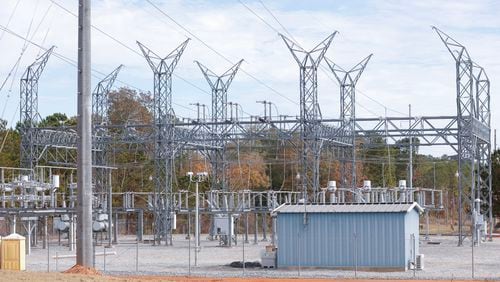Georgia is known as America’s “Peach State” because Georgia grows the best peaches in the world. When Georgians eat them, they enjoy one of nature’s most delicious and healthy treats while keeping their hard-earned dollars at work supporting Georgia farmers and the state’s economy. Buying peaches from anywhere else wouldn’t make sense.
We should apply the same principle to energy. Using Georgia’s own energy resources makes sense too. Lately, the Georgia Energy Economy has been expanding its leadership in nuclear energy, solar power, synthetic fuels, energy storage, hydrogen and more. The state is producing a larger portion of the energy it needs — cleanly, cheaply and reliably — keeping consumers’ dollars at work in the state’s economy.
New power projects are able to provide affordable electricity to commercial and industrial customers, making Georgia an even more attractive location for investments in advanced manufacturing, data centers, and other energy-intensive industries. As part of their environmental commitments, and because their customers demand it, many of these commercial power users want to lower the emissions footprint of their products and services. That’s why they’re looking for the cleanest power at the most affordable price, and Georgia delivers.
As an example, Georgia Power is revising its plans to add power generation just to keep up with extraordinary growth projections driven by population and new corporate investments, including from some of the world’s leading companies. They’ll meet that demand, in part, by leveraging more of Georgia’s own nuclear, solar energy and energy storage resources. The race is on to capitalize on this unique opportunity to attract new jobs and investment, so time is of the essence. Thankfully, solar power and energy storage projects can be built rapidly and come online quickly to meet emergent demand.
In addition to the obvious benefits to consumers, becoming an energy-producing state also provides new opportunities to Georgia landowners, including many in agriculture who face the perpetual challenges of global competition, uncertainty in the weather and volatile commodity prices. Diversifying their portfolio to include solar energy projects, for example, provides farming families with multigenerational income they can count on. That allows them to keep farming more securely, which in turn makes Georgia’s agricultural economy more resilient. More and more of Georgia’s electricity comes from the same sunshine that helps grow Georgia peaches.
These new power projects also have another often overlooked benefit in the form of direct and substantial positive financial impacts on the tax bases of rural communities. Solar, energy storage and other advanced power investments add value to the local tax rolls while asking little in the way of local services. With needed property tax exemptions in place to encourage agricultural production, many rural communities today struggle to generate sufficient revenue to cover essential infrastructure, public education and local government needs. Major new energy investments add to the ad valorem tax base, bringing new funding to provide those services and improve communities.
Of course, those currently selling energy into Georgia can’t stomach the idea of Georgia’s energy self-sufficiency, and a few of them work overtime funding “think tanks” and “experts” to spread misinformation about homegrown solar energy and other new technologies. Their efforts are as ludicrous as a campaign by out-of-state peach growers to spread false rumors about the dangers of peach growing. Thankfully, Georgians have the common sense to ignore these tactics and to prioritize the state’s own energy production and a stronger economic future.
It’s not sensible for Georgia to buy imported peaches, and it’s unwise to remain reliant on imported energy when Georgia has the power to power Georgia. Becoming an energy state provides consumers with affordable power; supports economic development and attracts other industries; presents new opportunities to landowners; and funds rural communities and schools. Georgia is achieving all of these goals thanks to leaders such as Kemp, the members of the Georgia Public Service Commission and many in the Georgia General Assembly, who have demonstrated the vision and courage to reject disinformation and to support an energy expansion.
Sound policies are prioritizing Georgia consumers and energy production in an effort to retain the state’s position as a leader in energy innovation and economic prosperity. Their vision and courage deserve recognition as they continue to pave the way for a brighter and more robust economic future powered by Georgia’s own energy resources.
Jeffrey Clark is the president of the Advanced Power Alliance, which promotes the development of America’s cleaner, cheaper, reliable energy resources.







